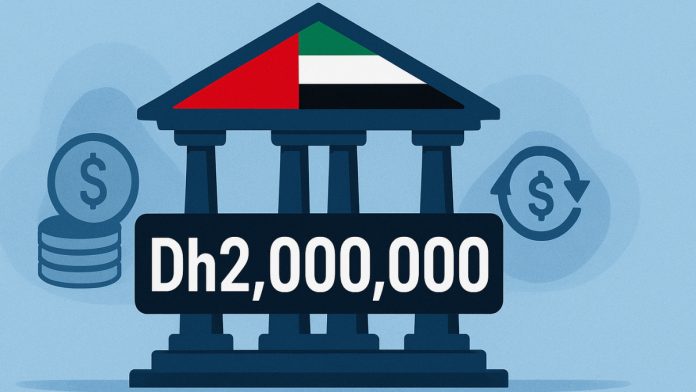The UAE Central Bank has announced strict action against Malik Exchange after it was found guilty of serious violations of the country’s financial laws. The exchange house has been fined Dh2 million and had its licence revoked. Its name has also been removed from the official Register.
The decision came after investigations revealed that Malik Exchange failed to comply with Anti-Money Laundering (AML) and Combating the Financing of Terrorism (CFT) laws. These rules are in place to stop illegal money movements and prevent financial systems from being misused.
Authorities said the violations were serious enough to warrant both a financial penalty and the cancellation of the company’s licence. By removing its name from the Register, Malik Exchange will no longer be allowed to carry out exchange activities in the UAE.
Exchange houses are businesses that allow people to change one currency into another or send money to their families abroad. They play a big role in the UAE because many people working in the country send money back home. Because these businesses handle large amounts of money every day, they must follow very strict rules to make sure the funds are safe and legal.
Sri Lanka’s FIU fines 2 casinos and state bank over money laundering breaches
The Central Bank has reminded all exchange houses that strict supervision is ongoing, and inspections are regularly carried out to make sure every company follows the law.
Why the Action Was Taken
The UAE Central Bank plays a key role in protecting the country’s financial system. It ensures that banks, insurance companies, and exchange houses follow both local and international rules. Anti-Money Laundering laws are particularly important because they stop money from illegal sources being disguised as legitimate business funds.
In the case of Malik Exchange, investigations uncovered repeated non-compliance with these regulations. The company was found to be in violation of the very laws that are designed to stop financial crimes such as money laundering and terrorist financing.
Because of the severity of the violations, the Central Bank not only fined the company but also revoked its licence altogether. This means Malik Exchange cannot continue operating under any circumstances. The fine of Dh2 million is meant to act as both a punishment and a warning to other firms in the sector.
The Central Bank has been very clear that it will not tolerate any company that fails to meet its obligations. The recent move highlights how seriously the UAE treats financial security and transparency.
Similar Actions in Recent Months
The penalty against Malik Exchange is part of a broader crackdown on financial and insurance firms that fail to follow the rules. In the past few months, the Central Bank has taken similar measures against other companies.
🇹🇷 Crypto kingpin falls — Turkey seizes ICRYPEX assets in explosive money laundering crackdown
On August 18, the licence of YAS Takaful PJSC was suspended after the firm failed to meet requirements set for insurance companies. Earlier, on July 11, the Central Bank suspended the licence of Al Khazna Insurance Company for not meeting the necessary conditions to carry out insurance business.
This year in March, the Central Bank also imposed fines amounting to Dh2.62 million on two insurance companies and five banks. These penalties were linked to failures in meeting international tax compliance standards.
Such measures are part of the UAE’s effort to maintain a clean, transparent, and trustworthy financial environment.
The UAE also follows international standards when it comes to financial rules. This is important because money often moves across borders, and illegal funds can be hidden in many ways. By keeping its rules in line with global practices, the country makes sure it stays trusted by international banks and organisations. This also protects ordinary people who use these services.
The message is clear: any organisation that does not respect the laws of the UAE or tries to bypass financial rules will face strong consequences.
